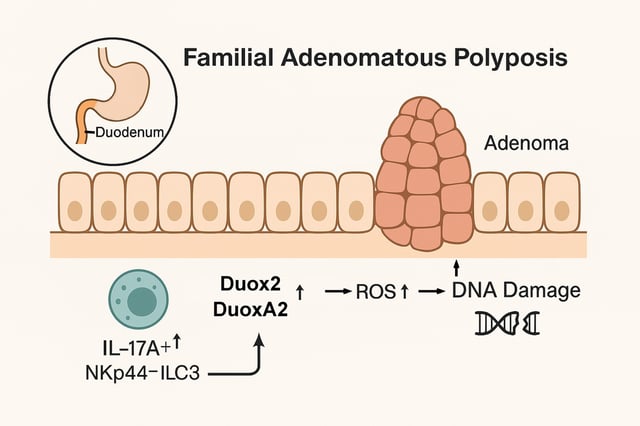Overview
- A study published in *Nature Communications* reveals that type 3 innate lymphoid cells (ILC3) are present in higher numbers in the duodenum of familial adenomatous polyposis (FAP) patients.
- These ILC3 cells produce interleukin-17A (IL-17A), which induces the production of reactive oxygen species (ROS) in intestinal cells, leading to oxidative DNA damage.
- The local accumulation of IL-17A-producing ILC3 creates a pro-carcinogenic environment in the duodenal mucosa, increasing cancer risk in FAP patients.
- Researchers suggest that targeting ILC3 cells or blocking IL-17A directly in the duodenum could serve as a novel preventive approach to complement existing endoscopic surveillance.
- This discovery highlights the role of the immune microenvironment in modulating FAP severity and introduces immunomodulation as a potential addition to current clinical management strategies.
